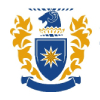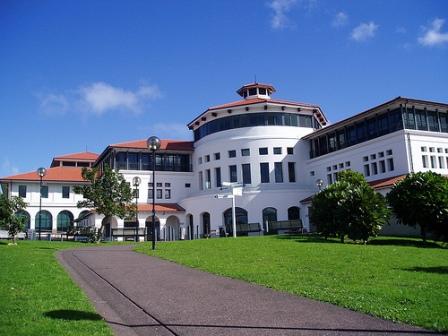Private Bag 11 222 Palmerston North, 4442, New Zealand
Career Counselling

Massey University is an institution of higher learning in New Zealand that offers undergraduate and postgraduate degrees and diplomas to domestic and international students on campus and through distance learning. It was ranked in the top 250 in the world in the QS Rankings 2024.
The University has three campuses (at Auckland, Wellington, and Palmerston North); each campus has multiple academic departments, with Auckland being the largest. All the locations have green spaces, with the Manawatū campus at Palmerston North having the mos...
| Establishment year | 1927 |
| Total Students | 30,132 (2021, full time + part time) 18,808 (2021, full time) |
| International Students | 4,186 (2021, full time + part time) 2,493 (2021, full time) |
| QS World University Rankings 2024 | =239 |
| Campus Size | N/A |
| Total Number of Campuses | 3 |
| University Website | https://www.massey.ac.nz/ |
| No. of Schools and Divisions | 5 Colleges (Business, Creative Arts, Health, Humanities & Social Sciences, Sciences) |
| Nobel Prize Winner Alumni | 0 |
| No. of Education Programs | 63 (undergraduate), 126 (postgraduate) |
| Student to Faculty ratio | 14.2:1 |
Massey University offers undergraduate and postgraduate courses through 5 Colleges, subdivided into schools, departments, institutes, and centres.
Other interdisciplinary institutes include the Centre for Professional and Continuing Education, the Massey University College, which provides foundation courses for admission to Massey University, and multiple research and specialist centres.
Undergraduate applicants from NZ or Australia usually must show good academic performance in the NCEA examinations (Level 3) or equivalent Year 12 examination. They must have strong English skills and satisfy any other course-specific criteria.
International undergraduate applicants whose first language is not English must show evidence of their proficiency in English. IELTS or TOEFL scores, Cambridge or Pearson qualifications, and the NZCEL are all accepted. Applicants will also need to achieve a minimum level of academic performance at school or a foundation course. The relevant University web page lists these levels for all countries from which current students originate.
Postgraduate eligibility criteria vary by course, but most courses at Massey require a good performance (B grade, equivalent, or higher) in a Bachelor's Degree or an honours course or Diploma. The course search tool lists the exact requirements for individual courses. To prove proficiency in English, there are four different routes:
Some PG courses may ask for additional materials like a portfolio or detailed resume of past professional experience.
Applicants to pursue an undergraduate degree at Massey must use the University’s online portal to submit their application. As part of this, multiple choices need to be made:
Deadlines for application are in October and May every year; the University sends out an Offer of Place to all accepted candidates, and their place is confirmed as soon as they accept the Offer and pay the fees.
Postgraduate students should follow these steps as they prepare to apply to Massey University:
Undergraduate tuition fees for domestic students from New Zealand range between $5,920 per year (for Teacher Education degrees) to $10,082 per year (for some Engineering degrees). Veterinary degrees ($13,580 annually) and Aviation ($53,660 annually) are substantially more expensive.
International UG students pay higher fees than domestic students. At the lower end are Arts degrees, with annual tuition fees of $29,000. At the higher end of the scale are Veterinary Science degrees ($71,380 per year) and Aviation ($97,290 per year). Most other subjects have annual tuition fees between $30,000 and $40,000.
Postgraduate tuition fees for domestic students from NZ vary by subject area. For example, in the Arts, tuition fees for PG students can range, for different courses, from $6,983 to $9,222 per year. In Science, the corresponding range is $7,606 to $12,073 annually.
The PG course fees for international students are $32,910 in the College of Arts. Most other subjects are within 10% of $40,000 per year, except Veterinary Science ($50,520).
Living costs can be estimated from the student visa requirements: applicants need to show that they have $20,000 to cover the cost of accommodation, food, travel, and personal costs in New Zealand for a year. Most students spend around $15,000 yearly on these things, over and above tuition fees.

Massey University has three campuses in prominent cities in New Zealand: Auckland, the largest city, and Wellington, the capital. And Palmerston North, where the Manawatū campus is located. The Auckland campus is filled with modern academic buildings, residence halls, and greenery; it is located close to the beaches of NZ's biggest city. Manawatū campus in Palmerston North has extensive teaching and research activity and large grounds filled with parks. The Wellington campus is located close to the hub of activity in the capital city and is slightly smaller than the other two.
Each of the three campuses of Massey University has a sports and recreation centre that serves as the hub of all health, fitness, and indoor sports-related activities. The Auckland Recreation Centre is open to both members of the University community and to the public, as are the Centres in Palmerston North and Wellington. All the venues offer regular fitness classes, gyms, sports halls, and social sports - a membership covers most of these facilities and more!

The campuses of Massey University host more than 200 clubs and interest groups: these are all run by students. They are of many types: from cultural clubs that celebrate the international diversity of the University, to social clubs that focus on music or movies, to academic clubs, to faith-based interest groups, to sports clubs, where novices and experts at both indoor and outdoor sports can find and play with people who share their passion.
Massey University's Career Centre coordinates all long-term and short-term professional placement and job activity on campus. It helps students plan their career moves while they study: with multiple online career resources, it helps build readiness for chosen careers and spend time with Career Consultants to fine-tune CVs and interview tactics. It also helps connect employers and students at career events and provides online and offline modes for students to search for and apply for jobs. The MyHub portal helps students upload resumes and portfolios and apply for internships and job openings. The Career Centre's services are not restricted only to current students; graduates of the University can access the portal for up to three years after they leave Massey.
The high cost of education for international students at Massey University leads many students to apply for scholarships at all levels: from UG funding to awards for research doctoral study. The University maintains a searchable database of all 355 available awards and scholarships, with filters to view only undergraduate and postgraduate scholarships and for eligibility. It also links to application forms for each scholarship and contains details about deadlines for applicants.
The number of scholarships available to undergraduates and postgraduates is almost the same (161 and 158, respectively). More than 40% of scholarships are merit-based for high achievers. Almost 20% of scholarships are reserved for Māori and Pasifika students.
Of the scholarships reserved for International students, the most prestigious is the International Undergraduate Excellence Scholarship, meant for full-time overseas students who display excellence of achievement, and are worth up to $30,000 each for 3-5 years, and the International Postgraduate Excellence Scholarship, which entails a cash award of $10,000. MBA students can also access scholarships based on excellence in UG performance, exceptional professional experience of 5+ years, and a recognised Master’s degree in addition to a UG degree. Each of these is worth $2,000.
